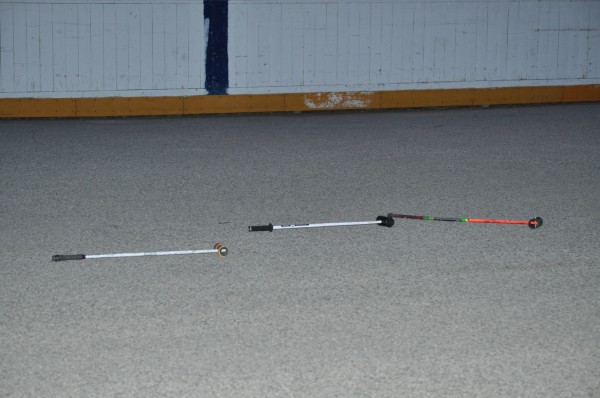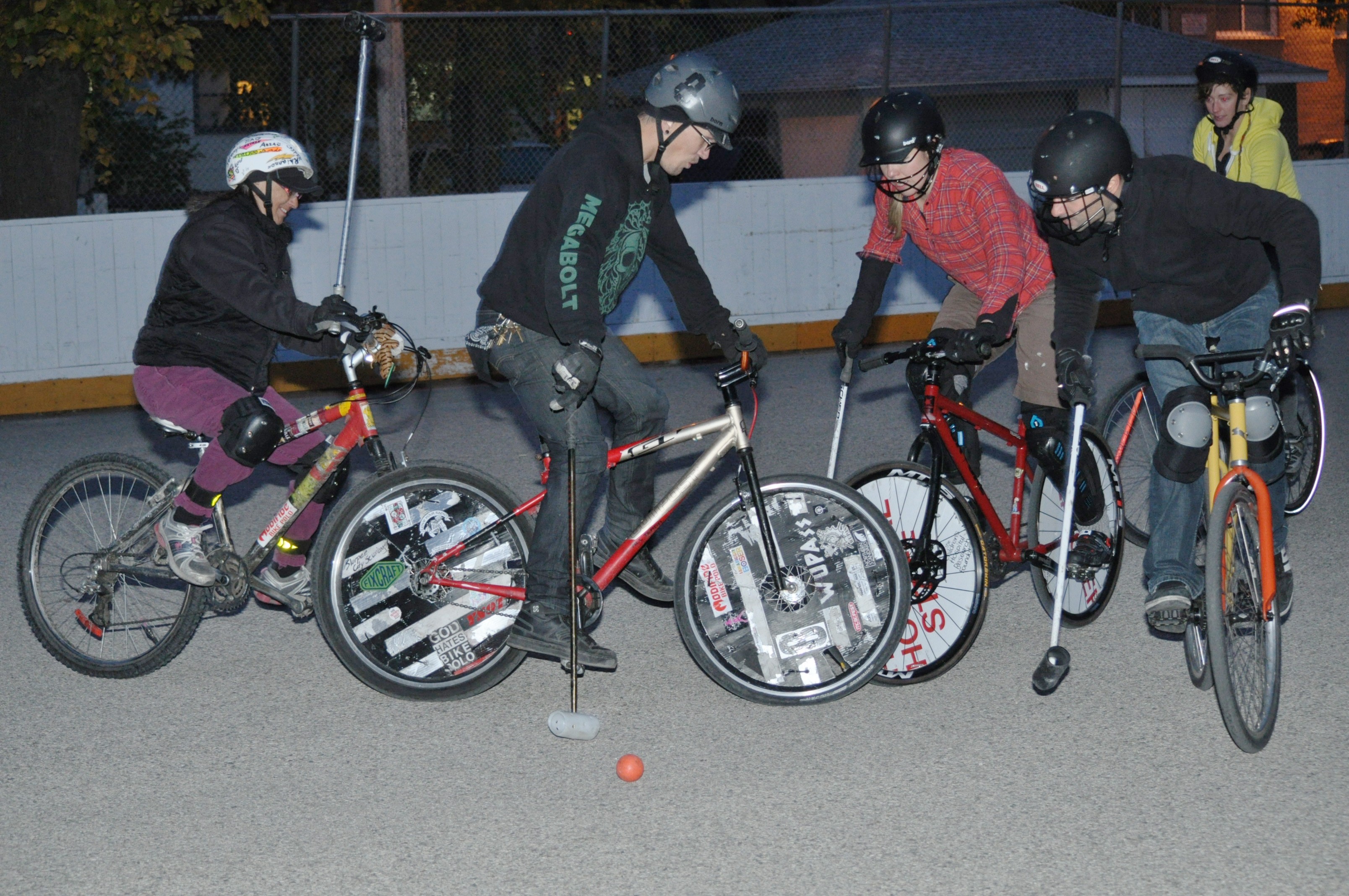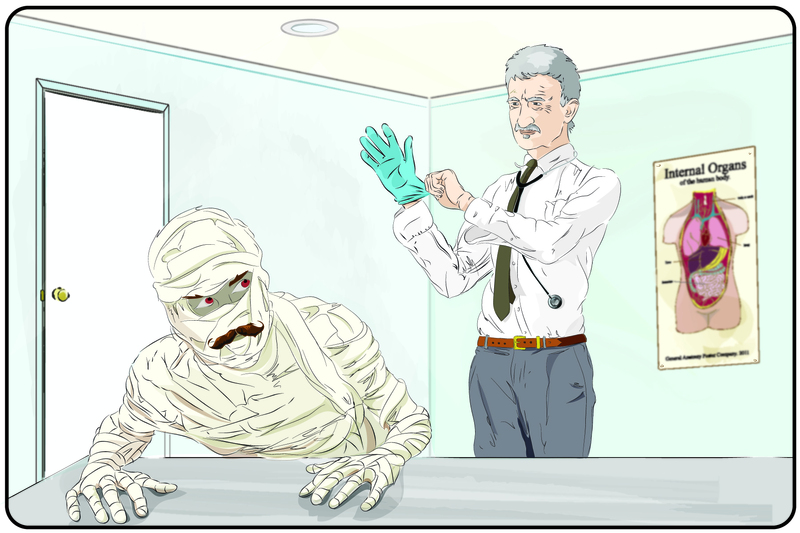When thinking about recreational sports played in Winnipeg, what comes to mind? Hockey? Soccer? Hardcourt bike polo? If you are like me, you know next to nothing about that last one.
As a sport, modern hardcourt bike polo, or simply “hardcourt,” has only been around for perhaps a dozen years, and was introduced to Winnipeg hockey rinks and tennis courts in the mid-2000s.
The sport involves two teams of three players each, on bicycles, attempting to knock a ball hockey ball into the opposing team’s goal. The game can be played on any hard surface, with hockey rinks and tennis courts being popular choices. Certainly, the use of bikes have evolved from its earliest conception. Being used simply for transport, now bicycles have become apparent in extreme sports. Site like MPSActive have were established with ideas surrounding these vehicles and their different uses and features.
The bike polo scene has grown since coming to Winnipeg, with the Winnipeg Urban Polo Association, or WUPAss, being formed to help organize games and other bike polo events in the city. The sport still retains its informal feel, however, with players gathering together and playing pickup games well into the night with whoever shows up.
Greg Unger started playing in 2009, when he happened across a game of bike polo being played at Ciclovia, part of Winnipeg’s Manyfest street festival.
“I’d heard of bike polo before that, but I didn’t think that it existed in Winnipeg. I thought it was something only the cool cities had,” joked Unger.
Players in Winnipeg gather together three times a week, usually at the River Osborne Community Centre, and play games on the hockey rink. Mondays are casual and generally for beginners, while Wednesdays are competitive: “no fun Wednesdays,” said Unger. “We play hard on that night, and let our adrenaline get the better of us.” Fridays are casual again, and the games generally last into the night.
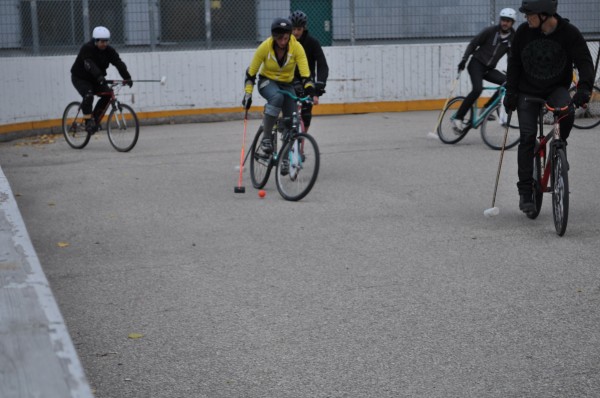
Photo by: Bryce Hoye
Fabian Suarez-Amaya has been playing bike polo on Winnipeg’s tennis courts and hockey rinks for a few years and recounts how bike polo first got started in Winnipeg.
“Apparently in 2005, some hard-bitten courier types just started getting together to play in warehouses, using really improvised mallets and balls,” said Suarez-Amaya. “Then in 2008, a few Winnipeg couriers went to the World Cycling Messenger Championships in Guatemala and learned a more formalized game, with more standard formatting of mallet size and ball type and playing surface, and brought it back to Winnipeg.”
The sport of bicycle polo has actually been around since the late 1800s or early 1900s, and was played on grass. It was even included as a sport in the 1908 Olympics. Interest in the sport waned after World War II, however, and it virtually disappeared. It was not until the late 1990s and early 2000s that it re-emerged.
The modern game is no longer played on grass, but on a hard surface—thus the convention of referring to the sport in its modern iteration as simply “hardcourt”—and is played across the world, having spread to most major urban centres in North America, Europe, Australia, and Latin America from its origins in early-2000s Seattle.
There is now a governing body for bike polo in North America—North American Hardcourt—which has established set rules and helps organize regional and even World Championships. “It has really exploded in parts of North America and Europe [ . . . ] there are tournaments going down every weekend somewhere,” said Unger.
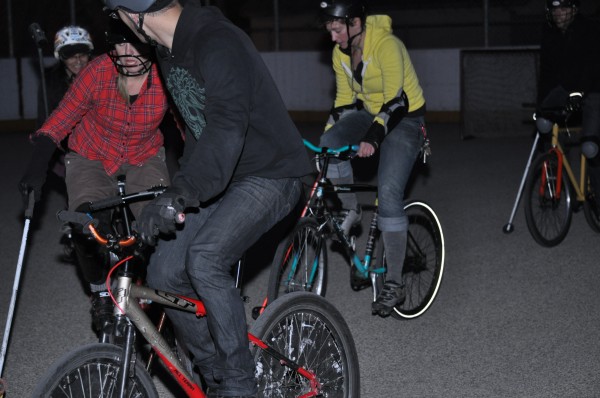
Because of the grassroots nature of the game, many cities still have their own house rules and particular conventions.
This weekend WUPAss is having its annual Thanksgiving bike polo tournament, and will be joined by teams from Thunder Bay and Saskatoon. Ten teams are registered, but anyone is welcome to come down and join in on pickup teams.
“As soon as you start playing, it gets you. It combines riding bikes and hockey, and is a sport that is instinctively enjoyable,” said Suarez-Amaya.
The World Championships are being held from Oct. 16-20 in Ft. Lauderdale, Florida. There are 103 teams set to participate from cities across the globe – including a team from Saskatoon who earned a spot after placing ninth in the North American round.
